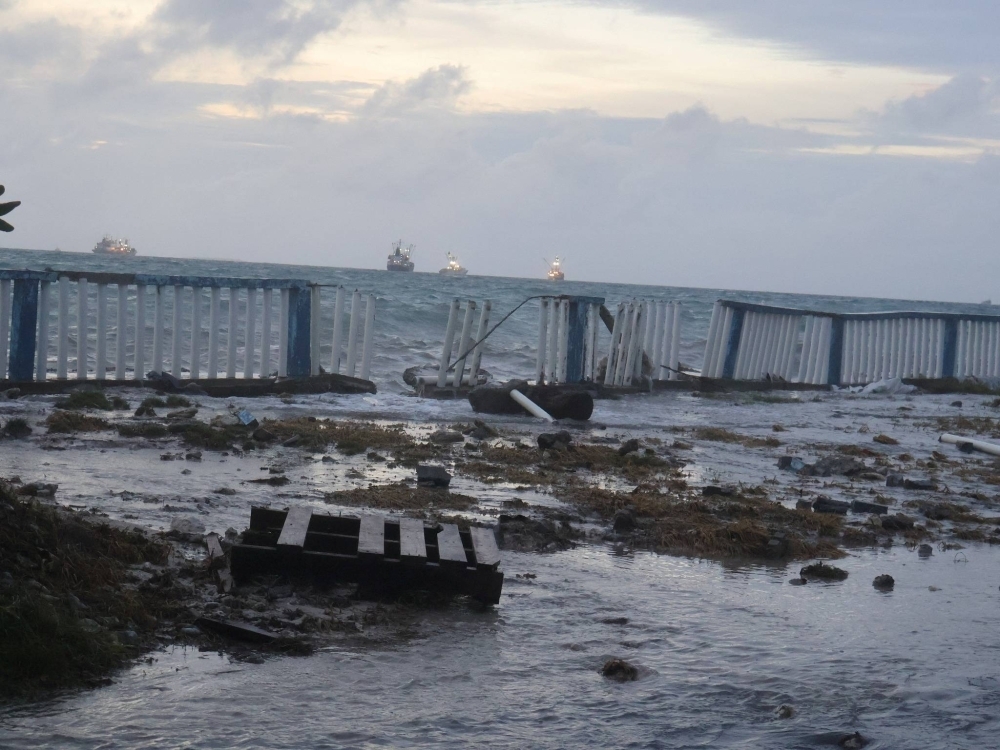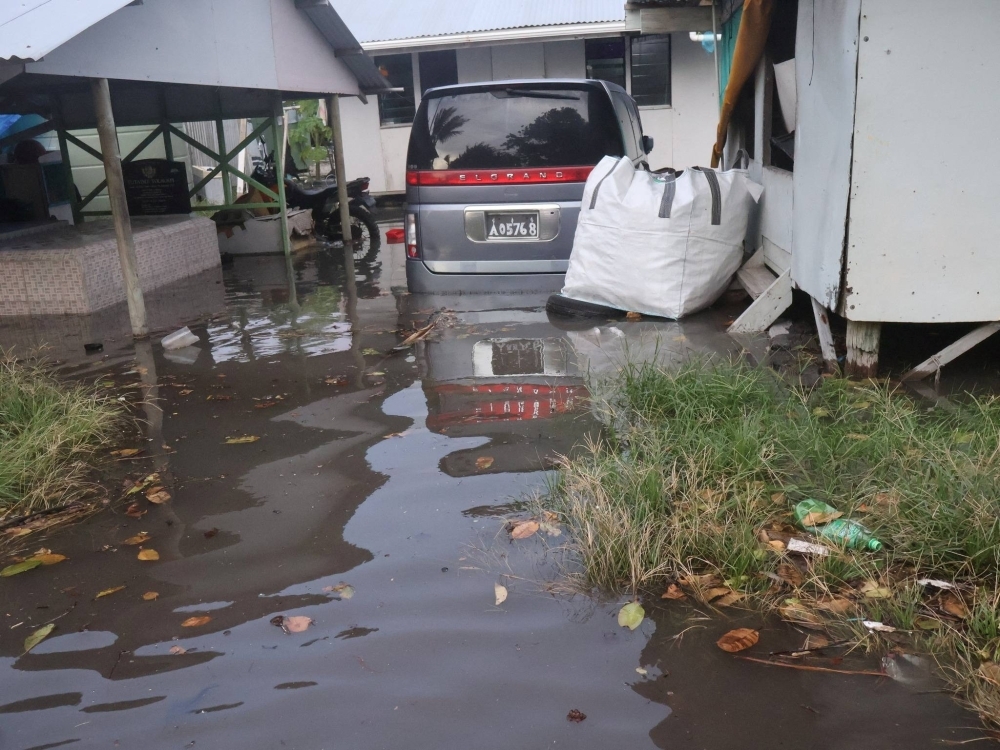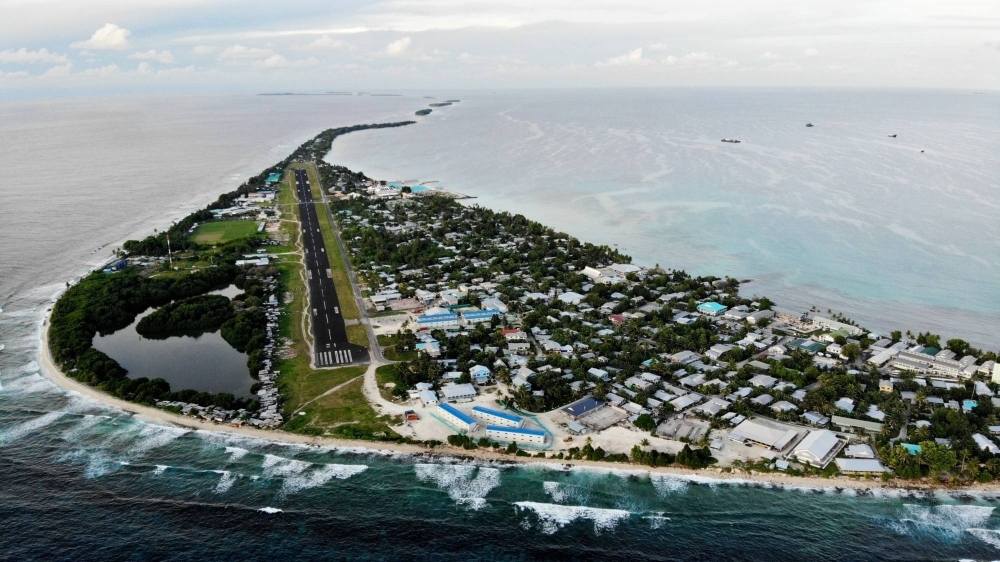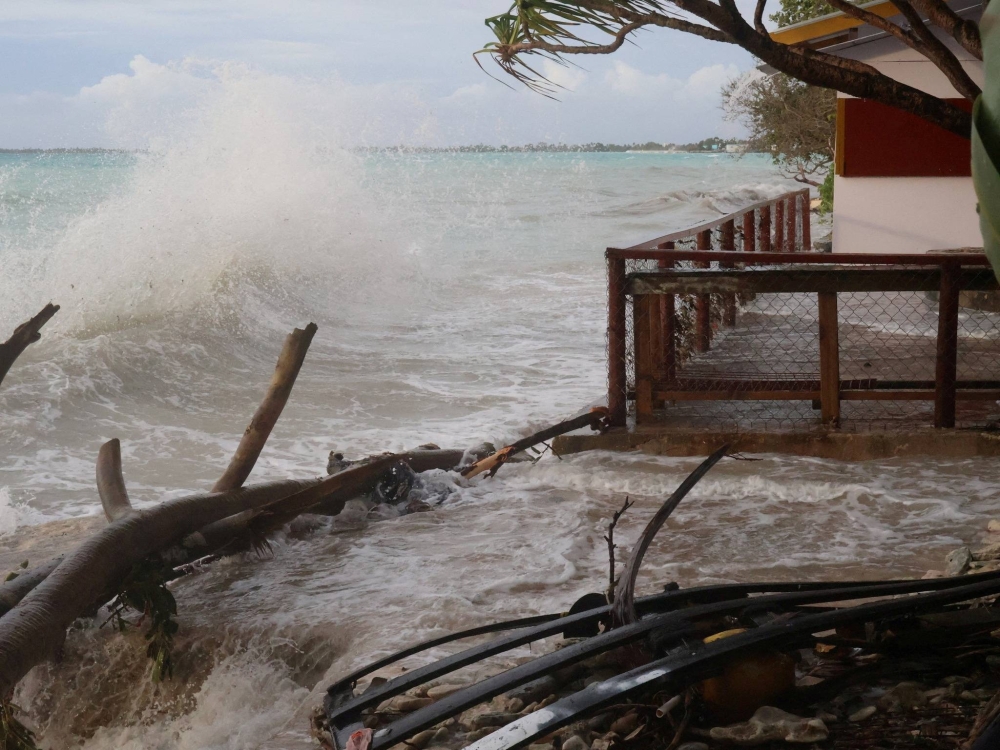Two years after he delivered a speech to the United Nations climate conference standing knee-deep in seawater to highlight the threat to the nation of Tuvalu, minister Simon Kofe said they were on their way to becoming a digital nation.
The Pacific island nation, halfway between Australia and Hawaii, had completed a detailed 3D scan of its 124 islands and islets, which will be the basis for creating a digital clone of itself, he said in a message in December.
Authorities are also archiving Tuvalu’s cultural heritage, as well as exploring a digital identity system to connect the diaspora, and a digital passport so citizens can register births, deaths and marriages, and participate in polls and other events.
“We are taking these practical steps because we must … ensuring our continuing sovereignty in the face of a worst-case scenario,” said Kofe, minister of justice, communication and foreign affairs.
“We cannot outrun the rising tides, but we will do what we can to protect our statehood, our spirit, our values.”
About 40% of the main atoll and capital district Funafuti is already underwater at high tide, and the tiny nation is forecast to be submerged by the end of the century.
Tuvalu may become the first nation in the metaverse — an online realm that uses augmented and virtual reality (VR) to help users interact — but it isn’t the only one seeking digital solutions to operate in emergencies and to preserve heritage.
During the COVID-19 pandemic, when physical movement was restricted, the island nation of Barbados said it would enter the metaverse to provide consular services, while in Metaverse Seoul, launched last year, visitors can pay taxes, play games and visit the city’s tourist spots.
And the Ukraine government’s digital platforms have evolved since the Russian invasion to provide details on bomb shelters, let citizens vote on petitions, and list damaged property. Volunteers have uploaded digital copies of art and music to a cloud database.

Debris following high tides, in Funafuti in February.
| Tuvalu Meteorological Service / via REUTERS
But moving an entire nation-state to the virtual world has enormous technical, social and political challenges, besides raising concerns about access, security and who controls the data, said Nick Kelly, an associate professor at the Queensland University of Technology.
“Much of the present investment in building the metaverse is coming from private companies; if our relationships, friendships, shopping, entertainment, learning, and business all take place in the metaverse, then we give up much of our autonomy,” he said.
“Who shapes the rules of those spaces?”
Value and impact
Advances in technology — from satellite images to VR to artificial intelligence — have helped create so-called digital twins of cities, or virtual three-dimensional replicas that can more accurately track and predict climate impacts, and simulate wildfires, pandemics and terror attacks, to plan for responses.
These technologies are also being used to preserve landscapes, monuments and traditions lost due to war, and to archive those that are in danger of disappearing from climate impacts.
In the Pacific island of Vanuatu, communities are leading digitization efforts to preserve the nation’s 117 endangered languages, and document traditional practices such as taro farming.
Meanwhile, American artist Amy Balkin crowdsources objects from places facing climate threats, and has received contributions from Nepal to Panama, for her collection titled A People’s Archive of Sinking and Melting.
Communities are best placed to decide whether, and how, their lives and homes must be memorialized, so there must be processes for them to act on what’s “most important and urgent,” said Kasia Paprocki, an associate professor of environment at the London School of Economics and Political Science (LSE).

A flooded entrance to a house after high tides in Funafuti in February.
| Tuvalu Meteorological Service / via REUTERS
Separately, an online museum of photos, videos, artifacts and stories of communities facing climate impacts is being set up by the International Institute for Environment and Development (IIED), a think-tank, with Dhaka-based International Center for Climate Change and Development (ICCCAD).
“Somebody in Senegal, Malawi, or Botswana losing something may not mean much to somebody sitting in the U.K. or Germany,” said Ritu Bharadwaj, a principal researcher at IIED.
“But if they get to see photos or videos of what we are losing as a global heritage, it would help foster a sense of value and respect.”
Still, while objects can help connect to stories and people, place still matters, said Jenny Newell, curator for climate change at the Australian Museum’s Climate Solutions Center.
“It’s all about the place, and it’s hard to memorialize a whole place with the depth and the richness of interconnections that can be held onto, and passed on between generations, when the place is gone,” she said.
Digital ark
In Tuvalu last month, an election result was delayed by weeks as dangerous weather stopped boats from bringing new lawmakers to the capital to vote for a prime minister.
That has made the question officials are posing to the population of about 12,000 more urgent: “what is the one thing you want to save if you lose everything?”
These could be artifacts of sentimental value, sounds of children talking, stories told by their grandfathers, or vibrant dances at their festivals.
These will be digitized and become part of a “digital ark” carrying the “very soul of Tuvalu” and preserving its essence, Kofe said.

An aerial view of downtown Funafuti and the airport runway in 2019
| Getty Images / via Bloomberg
But while the digital nation can preserve elements of Tuvaluan culture and tradition, there is a risk of “losing the intangible and dynamic aspects of culture that are rooted in physical space and social interaction,” said James Ellsmoor, chief executive of Island Innovation, a consultancy.
Even building a digital nation requires “significant technical expertise, infrastructure, and resources” that can be challenging for small island nations, he added.
“Ensuring accessibility and inclusivity for all Tuvaluans within the digital space adds another layer of complexity.”
In addition to these issues, is the paradox of forcing more people to spend more time in virtual spaces, said Kelly.
“This would consume huge amounts of resources — electricity and rare minerals, in particular — which would have a significant impact in making climate change worse,” he said.
Australia last year signed an agreement to allow 280 people to migrate from Tuvalu every year because of climate threats.
As more Tuvaluans leave, the bond with the land and the ocean is irretrievably lost, said Lin, a Tuvaluan who moved to New Zealand with her family when she was 8 years old.
“I can still remember the sound of the waves crashing on the shore, the church bell ringing for evening devotion,” said Lin, who asked to go by her nickname.
“You cannot digitally replicate the soil that grounds us a people … you cannot replicate physical connections.”

